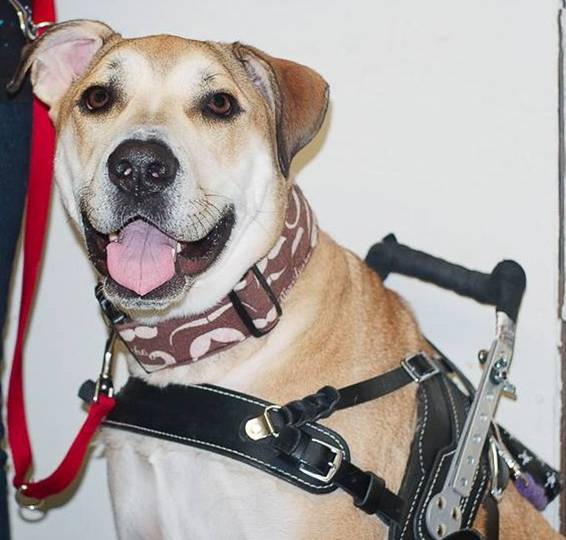The Sheriff’s Office was fortunate this week to have members of the local Service Dog Support and Advocacy Group provide a series of presentations to our deputies regarding “Responding to Calls that Involve Service Animals”. Deputies were provided information on best practices for responding to a situation where a service animal handler has been incapacitated. Lt. Samuel Preston (who helped coordinate the training) commented, “This information will be of great benefit to law enforcement and will help us better handle any service dog related issues.”
Group founder Victoria Tucker explained that under the Americans with Disabilities Act (ADA), businesses and organizations that serve the public must allow people with disabilities to bring their service animals into all areas of a facility where customers are normally allowed to go. This federal law applies to all businesses open to the public, including restaurants, hotels, taxis and shuttles, grocery and department stores, hospitals and medical offices, theaters, health clubs, parks, and zoos. Ms. Tucker pointed out, “Service animals are working animals, not pets”.
Ms. Tucker explained that a person with a disability cannot be asked to remove his service animal from the premises unless: (1) the animal is out of control and the animal’s owner does not take effective action to control it or (2) the animal poses a direct threat to the health or safety of others.
Ms. Tucker acknowledged a real problem exists in the form of dishonest individuals falsely claiming that they require the use of a service animal. Neither federal nor state law requires a service animal to have an official ID card, nor does the law permit a business to question a person about the nature of their disability. Ms. Tucker explained that a business representative may only ask if the animal is a service animal and inquire as to what tasks the animal has been trained to perform. Ms. Tucker was careful to draw a distinction between a service dog and a companion dog, “A service dog performs a specific task for its handler and is entitled the provisions of the ADA.”
Sheriff Dave Wedding extended his thanks to the Service Dog Support and Advocacy Group for visiting the Sheriff’s Office, “This training is a good example of how our office partners with the community in order to provide relevant training that addresses the needs of our residents.”
-END-

